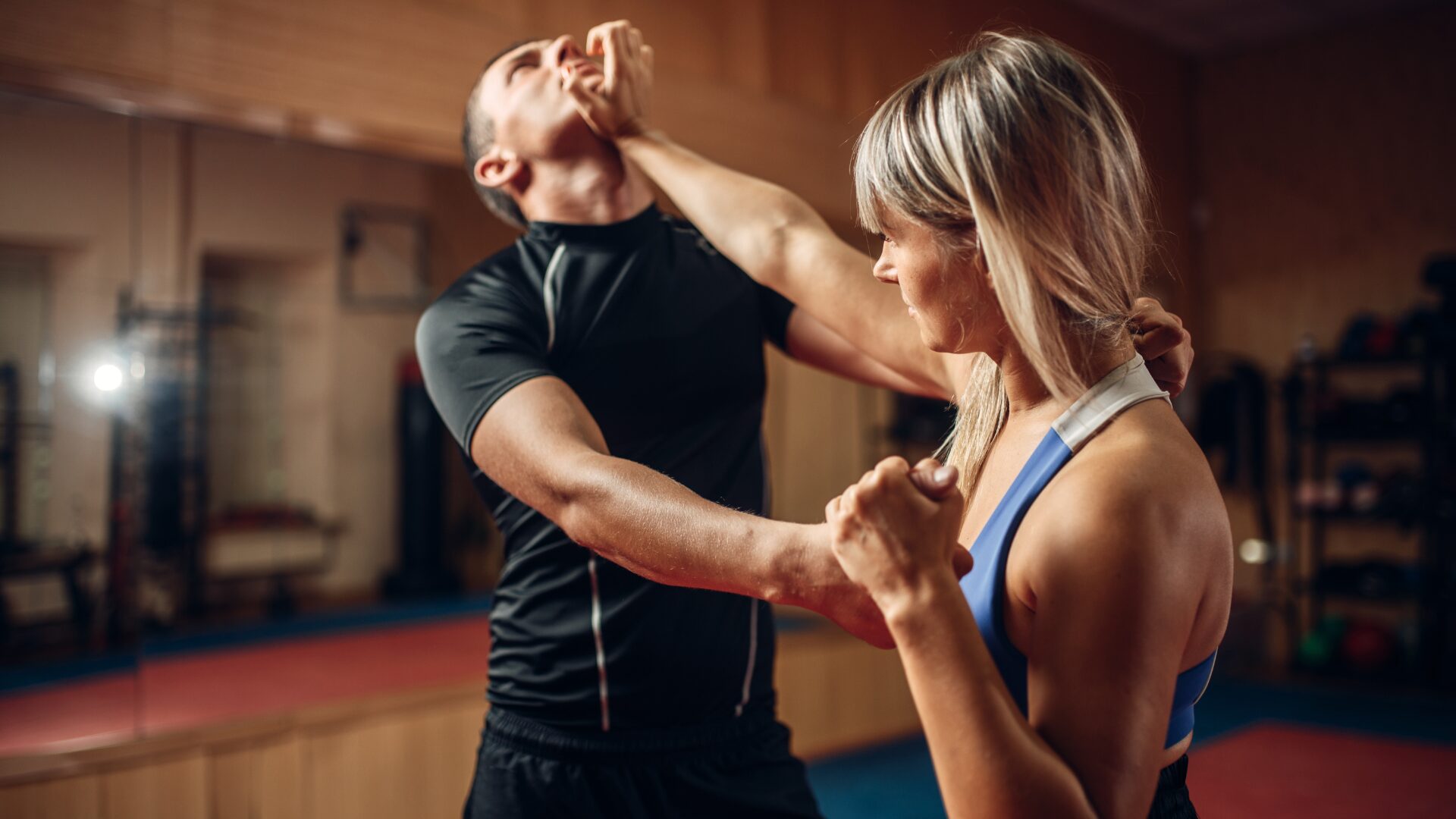No one ever taught me how to defend myself. I think a man is necessarily bigger, stronger than me. If he attacks me, I won’t be able to do anything. I will be petrified. He will rape me and kill me silently.
This is what I learned in my childhood. In films, in books, in conversations between women. My maternal grandmother is afraid of everything. She locks herself in the house. My mother advises me to find a friend, “to defend myself”. Should I wait for a man to protect me from others? What if he was the attacker?
In 2018 I suffered an attempted rape in the bathrooms of a Parisian library, in broad daylight. I defend myself physically, scream in his ears and run away from the attacker. However, I feel traumatized after the event. For a moment, before reacting, I was petrified.
Mental stupor is a normal reaction in the event of an attack. Many victims feel guilty for not moving, for not screaming… But how do we defend ourselves in a society that teaches us that we are victims by default, too weak to escape rapists, whoever they are?
The “three sentence” technique.
After the attempted rape, I decided to take charge of my own safety. I signed up for a first self-defense workshop, free of charge, during a queer and feminist festival in the suburbs of Paris. The theme of the workshop: verbal self-defense. I’m learning the technique of “three sentences”, derived from nonviolent communication: describe what I observe, describe what I feel and describe what I desire. If necessary, I repeat the second and third sentences until I reach an agreement with the aggressor, like a “broken record”.
A few months later, I experienced sexual harassment from a colleague at work. I use this technique to defend myself and stop the harassment. Works. But I feel guilty after using it: I find myself aggressive… At work, the atmosphere worsens and I alert management of the harassment I have suffered. My superiors protect my colleague, with a permanent contract. My fixed-term contract is never renewed.
Determined to get back on my feet, I started psychotherapy and signed up for a two-day “basic course” in feminist self-defense, organized by the Loreleï association in Paris. I’m part of a group of about ten very different people, brought together for a weekend in a chosen mix (no cisgender men) with a professional trainer.
With it we learn emotional self-defense (meditation and visualization exercises), verbal self-defense (the “three sentence” technique and many others) and physical self-defense (knocking out an attacker by multiple means).
How to transform a penis
This last part is the most spectacular, but the first two are fundamental to gaining self-confidence. These are the ones I use on a daily basis. Luckily, since my first workout in 2018, I’ve never broken a knee, twisted a penis, or freed myself from a neck hold. But I know how to do it. And this changes everything.
When I go out on the street after the “basic course”, I am no longer afraid of the men I meet (or anyone else). I feel confident and powerful. Street harassment immediately decreased. People leave me alone. Even in private I command respect. When my parents criticize me for no reason, I put them in their place. When a sexual partner doesn’t listen to me, I throw him out.
A few months after this foundational course, I participated in another course conducted by the trainer of the Lorelei association, this time dedicated to personal self-defense while hitchhiking. I have been hitchhiking on my travels for some time now and many people have warned me about the dangers of this mode of transport. For a day I learned with other hitchhikers how to defend myself in case of violent driving, how to stop a moving car, how to use my body in a small cabin.
Since then I have traveled much more calmly and hitchhiked regularly. I am embarking on a walking tour of France, the Survivor Tour. I sleep alone in my tent, in the forest, every night. I am no longer afraid of being raped or attacked. If a “big bad wolf” shows up, I will be able to dissuade him from hitting me, by fighting or knocking him out… It doesn’t matter my gender or my size. Now I can confuse the few men who harass me on the street.
Fear changes sides
I also frequently use the escape technique, used since the dawn of time by everyone. Yes, in many cases this is a very smart self-defense strategy. Furthermore, feminist self-defense, unlike many fighting methods such as krav maga (among others), is aimed at all audiences.
Many associations in France and elsewhere offer shorter courses or workshops for people with disabilities, for children, for the elderly, for LGBTQIA+ people, etc. At the end of the article you will find resources to train, if you wish, in the nearest city. Course prices are often adapted to the possibilities of the people who participate.
There are also educational works, such as the formidable No it’s no, a guide written by specialist Irene Zeilinger in 2018. Personally, I take the time to review the basics every three or four years, during a new “basic course”, offered by a feminist association. Because I rarely practice physical self-defense on a daily basis and quickly forget it!
Imagine a world where no one fears others, regardless of gender, size or state of health? If fear switches sides, the attackers will definitely leave us alone.
Associations:
- Belgium: Garance
- Paris region: ARCAF
- Montpellier: Lorelei
- Nantes: Defender
- Lille: Counterpunch
- Toulouse: tackle
- Saint-Étienne: Self-Managed Feminist Self-Defense 42
- Auvergne-Rhône-Alpes: SISTA
Books:
- No it’s no. Small self-defense manual for all women who are tired of bothering themselves without saying anythingIrene Zeilinger (The Discovery, 2018)
- For feminist self-defenseMathilde Blézat (The Last Letter, 2022)
To testify about Madmoizelle, write to us at:
[email protected]
We can’t wait to read you!
Do you like our articles? You’ll love our newsletters! Sign up for free on this page.
Source: Madmoizelle
Mary Crossley is an author at “The Fashion Vibes”. She is a seasoned journalist who is dedicated to delivering the latest news to her readers. With a keen sense of what’s important, Mary covers a wide range of topics, from politics to lifestyle and everything in between.





